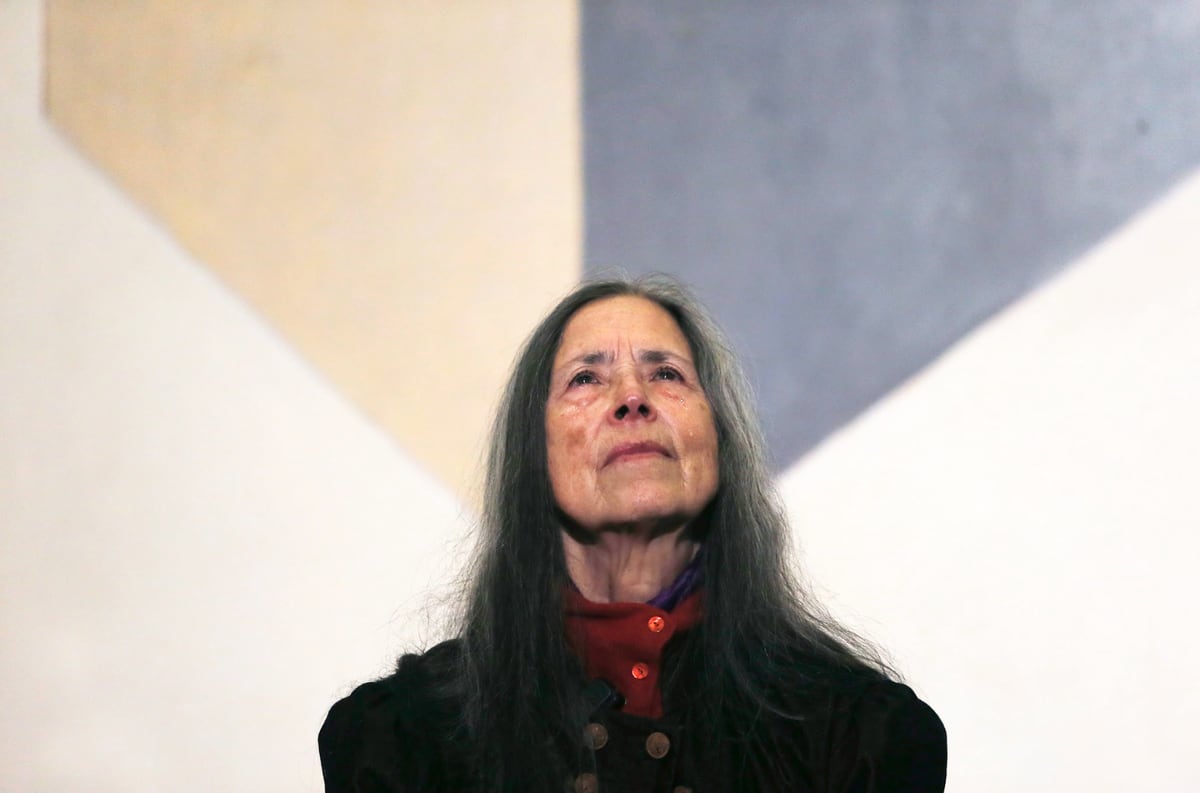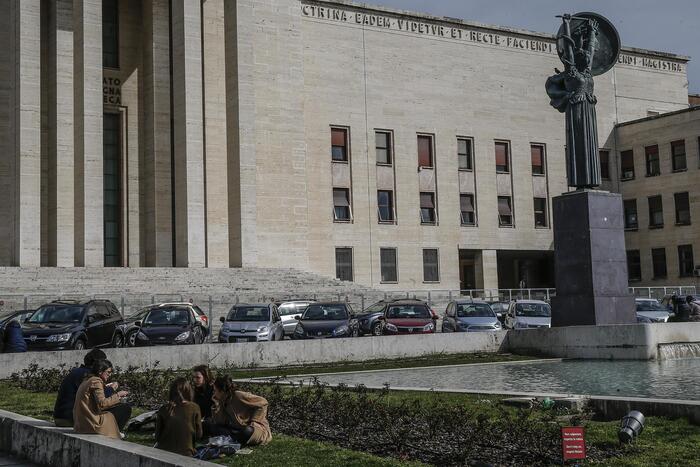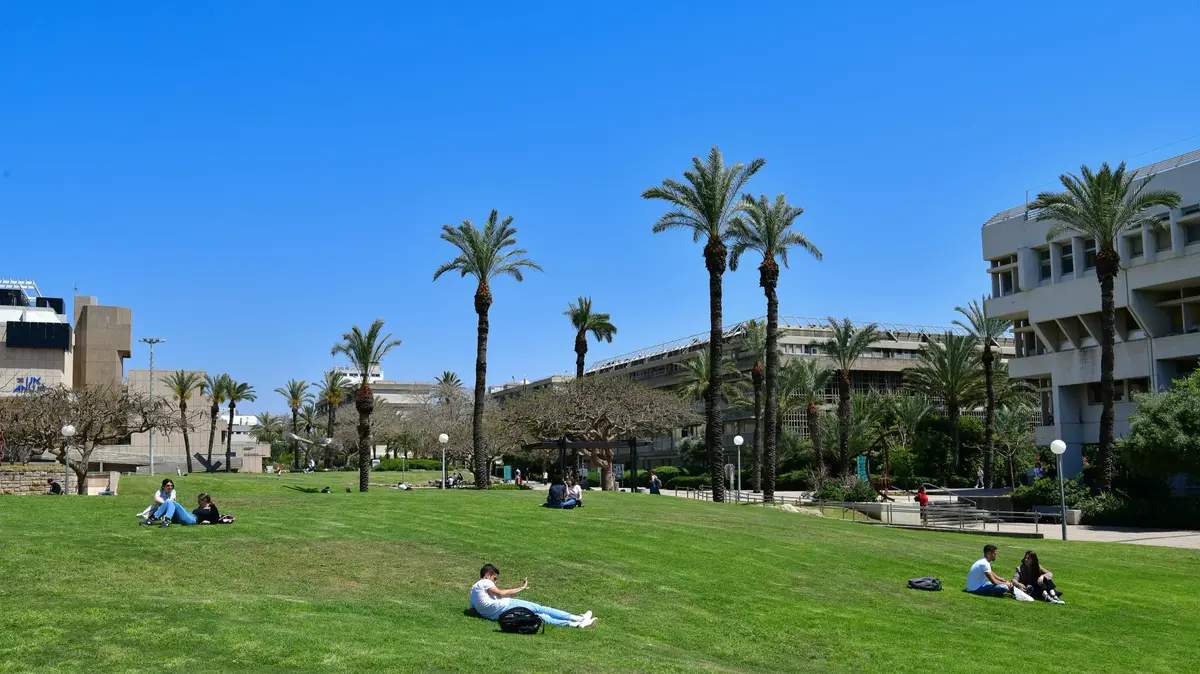The artist Cecilia Vicuña in the Hall of Honor of the Central House of the University of Chile.U.
From Chile
Cecilia Vicuña Ramírez (Santiago de Chile, 75 years old) took some waste thrown by the sea half a century ago and turned it into sculptures.
The trash cans
, as she baptized them, were the beginning of precarious art and of a life dedicated to the creation of poems, paintings, textiles and
performances
on ecofeminism and indigenism.
The originality that she displays in her work allowed her this Wednesday to transform a speech into a work of art.
On a platform located in the Hall of Honor of the Central House of the University of Chile, the main State institution in public higher education in the South American country, founded in 1842, Vicuña emitted a sound, an intonation.
He did it for 32 seconds.
He later thanked him by singing the distinction of Doctor Honoris Causa delivered by his alma mater.
“I value this award more than any other because it comes from mine.
After so much rejection, this is a rejection transformed into love, ”she said almost whispering to the rhythm of an ancient melody.
The United States Academy of Arts and Letters has just chosen you to enter its ranks as an honorary foreign member.
Her honor came to her after exhibiting at the Guggenheim in New York and at the Tate Modern in London.
Among the awards she has received in recent years are the Golden Lion for Lifetime Achievement at the Venice Biennale —the first Chilean to receive it— and the Velázquez Prize for Plastic Arts awarded by the Spanish Ministry of Culture.
But as she has recounted, for decades she felt ignored in her land and this gold
Doctoral Medal
granted by her house of studies comes to remedy her debt.
It is the highest distinction awarded by the University of Chile and the first to receive it was the Nobel Prize for Literature Gabriela Mistral, in 1954.
Daughter of artists and revolutions, Vicuña has lived in exile since the dictatorship.
Augusto Pinochet's military coup in 1973 against the socialist Salvador Allende found her in London and she did not return.
She has lived in New York for four decades.
In the first row of the commemorative act was Norma Ramírez, 98, mother of the artist.
“I am grateful to be alive to witness this wonderful act that my daughter is experiencing.
God save her 1000 years and a little more.
Me too?
1,000 years and a little more," Ramírez told this newspaper.
“The first recognition in Chile. In Chile, look!
She already had several in other countries and now… how nice this is, ”she added excitedly.
In her speech, the poet and teacher mentioned the Chilean folklorist Violeta Parra and Mistral.
She remembered from the first how she described when an idea for a poem occurred to her: “The little cloud is coming,” she would say.
“On the other hand, they attack me,” Vicuña assured, “they hit me like an atomic bomb.
It doesn't matter that I'm in the bathroom, on the micro (bus), tossing and turning on the pillow.
Nothing matters to him;
You have to take out a pen and paper.”
De la Mistral showed a painting that she painted in the seventies, inspired by her poem
Sol del trópico
: “Naked, look at me and recognize me…with pitahayas and mangoes, with the flamingos of the dawn and iridescent lizards”.
“When I showed it the first time in 1979 they told me 'put away that ridiculous paint crap.'
This is how it was still perceived by the feminists of the year 79, who were radically opposed to the feminists of today, who have made possible a rector like Rosa Devés [the first in the 179-year history of the University of Chile] and as the companions here present and the colleagues who are not afraid of radiant women, of radiant feminism, which is not demanding, but seeks the total transformation of the earth, of being and of everyone at the same time”, the artist visibly maintained moved.
Later, when singing the university anthem together with those present, the emotion came to tears.
Devés quoted at the ceremony what Vicuña wrote on the night of Pinochet's coup, half a century ago.
“The coup d'état is that red stain, that manta-ray, that evil that is seen flying and the blood that hangs from it are the wounds, the drops of Salvador Allende.
That fateful stain is fuming, killing everything that was alive, transforming into a desert what was once an orchard.
The text written when he was 25 years old accompanied his painting
De él La Muerte de Salvador Allende
.
That work has never been exhibited in Chile.
“Throughout her life, Cecilia has known how to collect those bones, those stones and those vestiges to give them new life.
The young woman at that time already said: if death serves for resurrection, the desert will germinate again”, added the rector.
The ceremony was also attended by the Minister of Culture, Arts and Heritage, Jaime de Aguirre;
the Undersecretary of Culture, Andrea Gutiérrez;
the dean and vice-dean of the Faculty of Arts, Fernando Carrasco and Luis Montes Rojas;
as well as vice rectors, deans and directors of different departments of the university.







/cloudfront-eu-central-1.images.arcpublishing.com/prisa/H7MKZ6R4VNBYXPLGKKCUXO6FV4.jpg)







